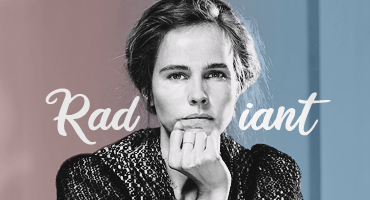Deborah interviews Isabel Lucas on Ocean Activism and Saving Dolphins in Japan
Deborah: What is your direct and intimate relationship to the Ocean? Did you grow up near the Ocean or have an experience at a young age that bonded you to the Ocean?
Isabel Lucas: I grew up predominantly in Melbourne and then Cairns – both are coastal cities. When I was a child we spent a lot of time on the beaches in Melbourne playing and looking for shells and washed-up treasures and later in Cairns I discovered the wondrous world of the Great Barrier Reef with its colourful fish and coral. I’m truly in awe of the sea and its amazing creatures – from whales to dolphins to seahorses…
Deborah: What is the most important issue for you surrounding Ocean preservation?
Isabel: Everything… The ocean is an amazing eco-system that is threatened because of global warming, over-fishing, and other unbalancing factors. The preservation if its creatures and their food sources are equally important as pollution and exploitation.
Deborah: Was there one particular event, cause, and/or person who inspired you to become an active Ocean defender?
Isabel: think it was mostly my love of whales and dolphins at first. As grew older I became aware of the inter-connectedness of life on land and in the oceans and that the whole delicate system is at risk.
Deborah: Do you have an particular heroes in the Ocean movement and if so can you please list them and explain why?
Isabel: Captain Paul Watson (and Sea Shepherd) is an uncompromising and determined warrior who has saved many whales. I also deeply respect Dave Rastavich, (a surfer friend who organised the ceremony in Taiji) Ric O’barry (The Cove) and Jeff Pantakhoff (Whaleman Foundation) they dedicate so much to creating awareness of the importance of the oceans preservation and protecting the amazing sea creatures.
Deborah: What feelings and emotions did the Taiji action evoke and would you do it again if given the opportunity?
Isabel: Yes, I would do it again. This cause and trip to Taiji was a deeply emotional and personal experience. We wanted to create our own small ceremony to honor the lives of the dolphins and whales that had been slaughtered. Each of us who paddled into the killing cove were over whelmed by the sadness and absurdness of what was happening in front of our eyes. We’ve all seen our share of animal rights films and docomentary footage in slaughter houses etc, but to actually be witnessing these events, this cruelty, firsthand was life-altering. Reflecting back now, before I went on the trip I was an idealist and I now consider myself a realist. But whether you’re realist, idealist, presumist, optimist – its blatently clear and blaring us in the face how wrong this it is to barbarically slaughter intelligent life. I came to see that these sentient beings are not that different from our kind. The main difference is they are living peacefully with one another.
Deborah: As an Australian, do you see ways in which other whaling nations can follow the model that your native country has adopted to preserve ocean wildlife- and/or is there more that governments of the world can be doing to enforce maritime laws and treaties?
Isabel: I definitely believe that more can be done. On the east coast of Australia, whaling has been replaced by whale-watching tourism in just thirty years. Also the Great Barrier Reef has been declared a conservation zone in parts and there are now efforts to declare the whole Coral Sea a conversation zone. That would be truly remarkable as it would make the Coral Sea the largest protected zone on Earth – as it should be.
Deborah: How would you recommend that young people who look up to you as a spokeswoman for the Ocean preservation movement become more actively involved in protecting the world’s Oceans?
Isabel: Join and support environmental organisations, educate yourself about the issues and discuss them with friends. Write letters to politicians and the media to express your thoughts and that the oceans need to be protected for our children and future generations.
Also appreciate and enjoy the ocean and beaches and show you respect through living more sustainably, ‘green’. Let’s recycle whenever we can and live as conservers not consumers.
 Welcome to Unicorn, your one and only resource for the talented Aussie actress Isabel Lucas, known from "Home & Away", "Transformers: Revenge of the Fallen", "MacGywer" and "Careful What You Wish For". Here you can find detailed information, exclusive high quality photos, all the latest news, as well as other multimedia such as videos, audio files and graphics. I hope you will enjoy the site, and don’t hesitate to get in touch if you have any questions or concerns. Make sure to bookmark us, and check back!
Welcome to Unicorn, your one and only resource for the talented Aussie actress Isabel Lucas, known from "Home & Away", "Transformers: Revenge of the Fallen", "MacGywer" and "Careful What You Wish For". Here you can find detailed information, exclusive high quality photos, all the latest news, as well as other multimedia such as videos, audio files and graphics. I hope you will enjoy the site, and don’t hesitate to get in touch if you have any questions or concerns. Make sure to bookmark us, and check back!

















